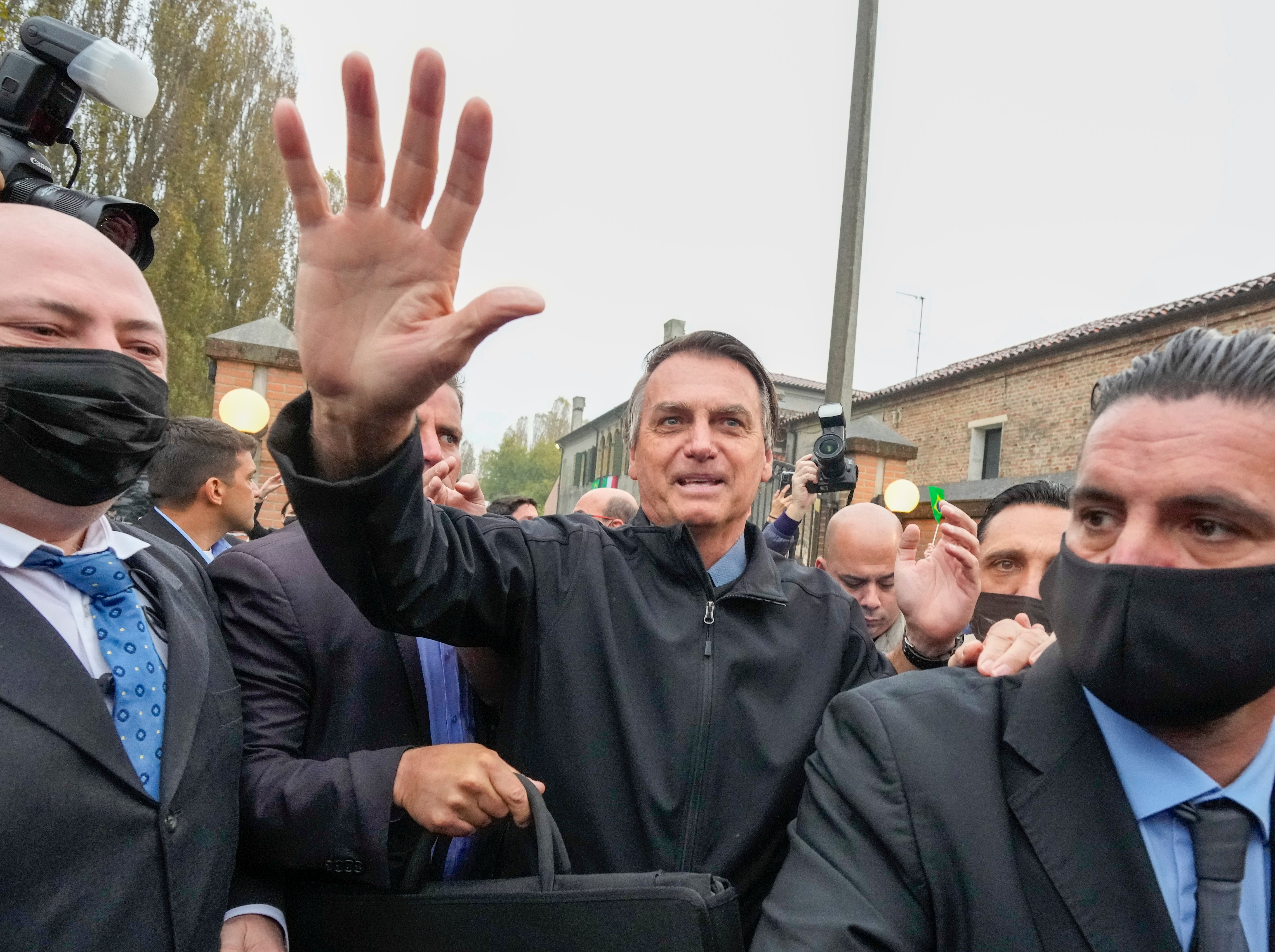Brazil steps up climate emissions goal; critics unimpressed
Brazil’s government has stepped up its commitment against greenhouse gas emissions, aiming to halve them by 2030 as compared to 2005 levels

Your support helps us to tell the story
From reproductive rights to climate change to Big Tech, The Independent is on the ground when the story is developing. Whether it's investigating the financials of Elon Musk's pro-Trump PAC or producing our latest documentary, 'The A Word', which shines a light on the American women fighting for reproductive rights, we know how important it is to parse out the facts from the messaging.
At such a critical moment in US history, we need reporters on the ground. Your donation allows us to keep sending journalists to speak to both sides of the story.
The Independent is trusted by Americans across the entire political spectrum. And unlike many other quality news outlets, we choose not to lock Americans out of our reporting and analysis with paywalls. We believe quality journalism should be available to everyone, paid for by those who can afford it.
Your support makes all the difference.Brazil on Monday stepped up its commitment against greenhouse gas emissions, aiming to halve them by 2030 as compared to 2005 levels, while critics alleged the government is tinkering with data.
“We present today a new, more ambitious climate goal," Environment Minister Joaquim Leite said at the United Nations climate conference in Glasgow
Brazil previously set a target of 43% fewer emissions by 2030 versus 25 years earlier.
The announcement represents another effort by the Brazilian government to project itself as a responsible environmental steward in the wake of surging deforestation and fires in Brazil’s Amazon rainforest and Pantanal wetlands in recent years. But critics cautioned that its shift should be viewed with skepticism.
Experts have accused Brazil of previously adjusting its emissions targets in a way that would allow it to release more greenhouse gas into the atmosphere. The government significantly increased the estimate for its baseline, making its target easier to accomplish.
Rodrigo Agostinho, a federal lawmaker and member of the Brazilian delegation to Glasgow, told The Associated Press on Sunday that “no one trusts Brazil anymore” — and that won't change even with the new emissions target.
“The world doesn’t accept the Brazilian goal, because it has a failure of methodology in measurement that allows us, theoretically, to increase emissions,” said Agostinho, who is a member of the environmental commission in Congress’ lower house.
The new 50% target, using the updated baseline, would leave Brazil's emissions reductions at the same level adopted by former President Dilma Rousseff with the 43% goal and the prior baseline, according to the Climate Observatory, a network of environmental nonprofit groups.
Last week, the network published a study concluding Brazil’s emissions increased 9.5% in 2020, in large part due to Amazon deforestation. The uptick ran counter to the rest of the world, where emissions dropped during the COVID-19 pandemic as economic activity contracted.
In Glasgow, Minister Leite also reiterated an announcement by President Jair Bolsonaro at the White House-led climate summit in April that the government will seek carbon neutrality by 2050, ahead of its prior 2060 commitment.
And Brazil's Vice President Hamilton Mourão said last week that the Brazilian delegation to the U.N. climate talks will announce a target of zero illegal logging by 2027 or 2028, sooner than a 2030 goal Bolsonaro presented in April.
“Brazil is part of the solution to overcome this global challenge,” Bolsonaro said in a short video message prior to Leite's address. ”The results achieved by our country through 2020 show we can be more ambitious."
Bolsonaro — an outspoken proponent of developing the Amazon — became a lightning rod as fires and logging savaged protected areas and sensitive wildlife habitats in Brazil. Institutional investors expressed concern and threatened divestment.
The president attended Group of 20 summit of the world's biggest economies, which wrapped up Sunday in Rome, but the presidential press office said the climate meeting in Glasgow was incompatible with his agenda. Instead, on Monday he visited a small town in Italy that had been home to one of his ancestors.
Vice President Mourão offered a hint Bolsonaro may be avoiding the conference because he would be poorly received, telling reporters in the capital, Brasilia, last week that everyone at the meeting would “cast stones at him.”
Even as Bolsonaro's government prepared to step up its pledges, the president last week visited an illegal mining site within an Indigenous territory in the Amazon. He has been pushing for approval of a bill that would allow regulated mining in such protected areas.
___
Álvares contributed from Brasilia, Brazil.